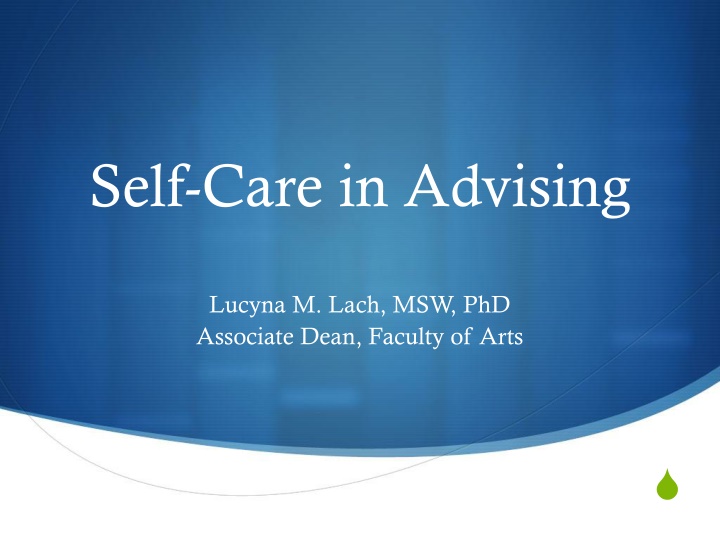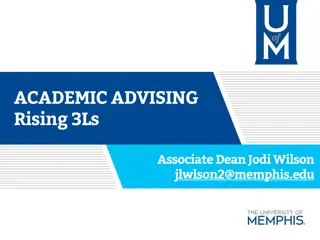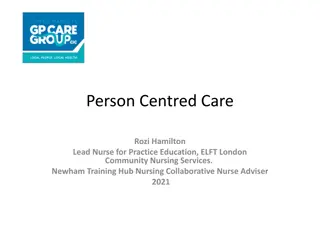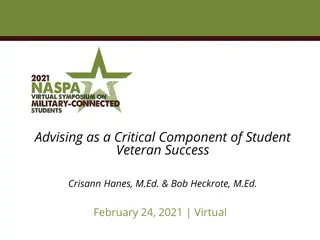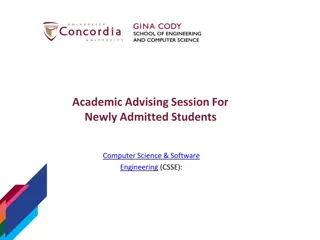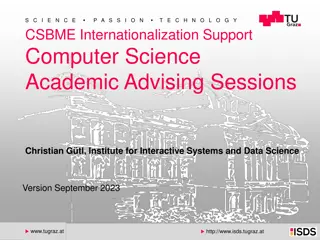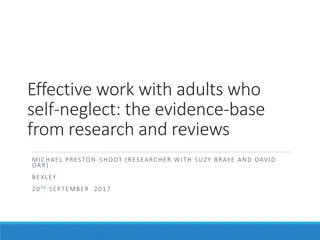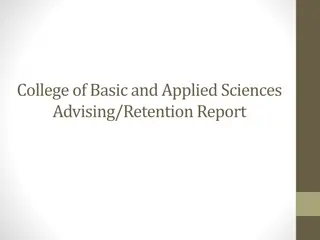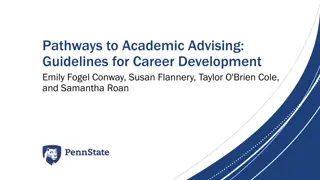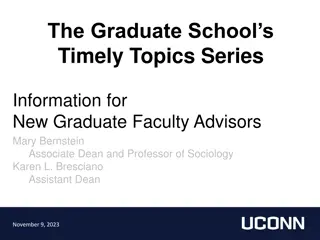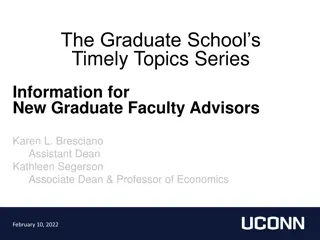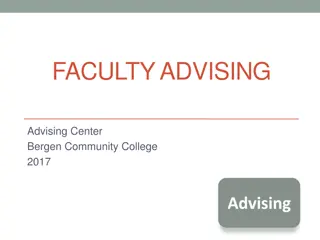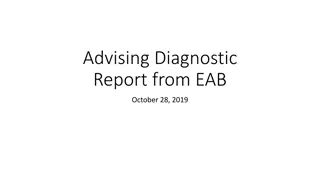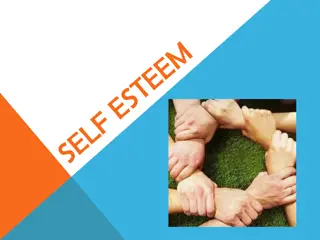Self-Care in Advising: Essential Beliefs and Values
In the context of university advising, self-care is essential for both students and advisors. Beliefs about oneself, self-expectations, responsibility, and empowerment form the core of self-care practices. Recognizing the significance of treating oneself well is crucial for maintaining overall well-being and effective guidance in academic settings.
Download Presentation

Please find below an Image/Link to download the presentation.
The content on the website is provided AS IS for your information and personal use only. It may not be sold, licensed, or shared on other websites without obtaining consent from the author.If you encounter any issues during the download, it is possible that the publisher has removed the file from their server.
You are allowed to download the files provided on this website for personal or commercial use, subject to the condition that they are used lawfully. All files are the property of their respective owners.
The content on the website is provided AS IS for your information and personal use only. It may not be sold, licensed, or shared on other websites without obtaining consent from the author.
E N D
Presentation Transcript
Self-Care in Advising Lucyna M. Lach, MSW, PhD Associate Dean, Faculty of Arts
Do What You Know You Should Do Being Regular exercise Diet Sleep Mindfulness and relaxation Belonging Family Community Becoming Sense of Future Purpose
Case Study 1 Sandra is a U0 student who completed her high school education in Alberta. She comes to see you and as you begin your conversation with her, you notice that something is not quite right. Her gestures seem slightly off; she soon discloses, very frankly, that she has a mental illness. After explaining the process for registering for courses and Freshman requirements, she proceeds to ask you complete the process for her.
Questions for the Audience 1. How would describe this student? A. Helpless B. Manipulative C. Vulnerable D. Immature E. Informed 2. On a scale of 1 to 10, what role does mental illness play in her question where 1 means not at all and 10 means a great deal?
Context of the Advising Role University as a transition program Emerging adulthood
Key Message Self-care has as much to do with treating yourself well as it does with your beliefs and values about others and about yourself Beliefs about yourself Self-expectations Responsibility Empowerment
Key Message Beliefs about other(s) - Change is inevitable - No problem happens all of the time - Individuals have the resources to change - There are many ways to look at a situation, none more correct than others - Students define their goals as they see fit for them at that time - Only a small change is necessary
Key Principles Go slow Increase options Co-develop directions Identify with student s strengths and resources Never fight Think incrementally
Case Study 2 Roger received a notice indicating that he had to see me for alleged plagiarism. Roger had participated in a group assignment. There were 2 components, a group presentation and an individual paper. The paper contained elements from the group presentation. Question regarding ownership of content of individual paper.
Link to Self-Care Beliefs about self and other are linked to self-care Obligations and duties as educators of this next generation Self-expectations, responsibility and empowerment Views of other in a more beneficent manner
